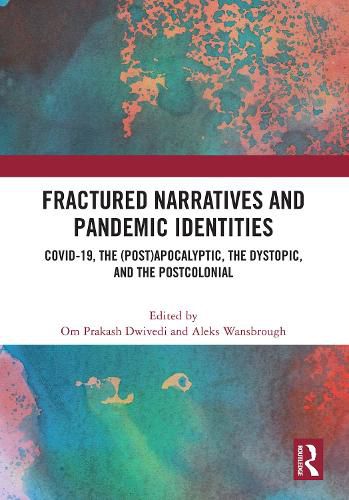Readings Newsletter
Become a Readings Member to make your shopping experience even easier.
Sign in or sign up for free!
You’re not far away from qualifying for FREE standard shipping within Australia
You’ve qualified for FREE standard shipping within Australia
The cart is loading…






The book considers how identities have become more fractured since COVID-19, by thinking of COVID-19 in relation to other crises (economic, social, digital, and ecological) and by drawing parallels to literature, cinema, and visual art.
COVID-19 was a type of apocalypse, a catastrophic destructive event that produced dystopian measures in its wake and drew uncanny parallels to dystopic works of literature and speculative fiction. Yet the pandemic was apocalyptic in another sense too. The word apocalypse derives from apokalupsis, which means disclosure or uncovering. In this way, COVID-19 also revealed the dystopian processes already at work in the world, including digital forms of surveillance as well as the asymmetries within populations and divides in health outcomes between the Global North and Global South. Indeed, societies that have experienced the horrors of settler colonialism have already survived apocalypses. COVID-19 serves then as a premonition for our climate emergency as well as an echo of other apocalyptic situations, both real and imagined. This book consists of essays from acclaimed theorists and scholars writing amid the pandemic and exposes the asymmetries of our divided world. The volume will be indispensable for scholars and researchers of literature, postcolonial studies, cultural studies, and comparative literature including post-apocalyptic and speculative fiction.
The chapters in this book were originally published as a special issue of Journal of Postcolonial Writing and are accompanied by a new afterword.
$9.00 standard shipping within Australia
FREE standard shipping within Australia for orders over $100.00
Express & International shipping calculated at checkout
The book considers how identities have become more fractured since COVID-19, by thinking of COVID-19 in relation to other crises (economic, social, digital, and ecological) and by drawing parallels to literature, cinema, and visual art.
COVID-19 was a type of apocalypse, a catastrophic destructive event that produced dystopian measures in its wake and drew uncanny parallels to dystopic works of literature and speculative fiction. Yet the pandemic was apocalyptic in another sense too. The word apocalypse derives from apokalupsis, which means disclosure or uncovering. In this way, COVID-19 also revealed the dystopian processes already at work in the world, including digital forms of surveillance as well as the asymmetries within populations and divides in health outcomes between the Global North and Global South. Indeed, societies that have experienced the horrors of settler colonialism have already survived apocalypses. COVID-19 serves then as a premonition for our climate emergency as well as an echo of other apocalyptic situations, both real and imagined. This book consists of essays from acclaimed theorists and scholars writing amid the pandemic and exposes the asymmetries of our divided world. The volume will be indispensable for scholars and researchers of literature, postcolonial studies, cultural studies, and comparative literature including post-apocalyptic and speculative fiction.
The chapters in this book were originally published as a special issue of Journal of Postcolonial Writing and are accompanied by a new afterword.